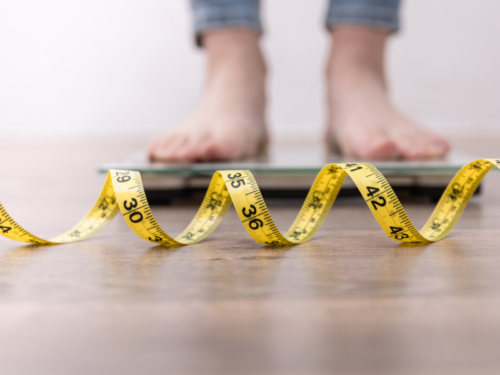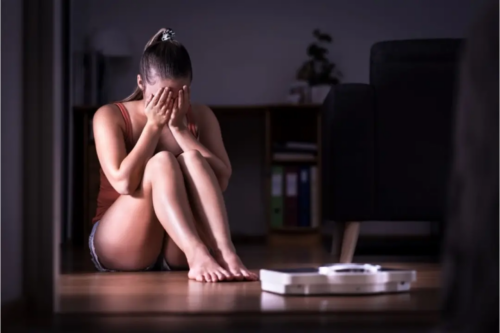
Table of Contents
What is Body Neutrality?
Written By: Charlie Health Editorial Team
February 14, 2022
4 min.
Eating disorders are complicated, but at Charlie Health we believe recovery is possible. Learn more about eating disorders, and body neutrality in our blog.
Learn more about our Clinical Review Process
Table of Contents
Body neutrality is the concept that you can exist without hyper-focusing on your body. At its core, body neutrality is a response to the body positivity movement—the movement encouraging people to love and celebrate their bodies as they are right now. Over the last few years, the body positivity movement has gained significant attention, with magazines banning the term “bikini body” and brands promoting bodies of all shapes, sizes, and abilities. But body positivity has one major limitation: It focuses on loving your body when there’s so much more to you than your appearance. Body neutrality focuses on moving away from body image and appearance as a source of esteem and instead encourages you to be grateful for everything your body does for you. It’s all about shifting your perspective—from low self-esteem and disgust to body appreciation and respect.
How can body neutrality help with eating disorder recovery?
Not everyone with an eating disorder experiences negative body image, but body image concerns can be a significant problem for many people with eating disorders. Body image disturbances are diagnostic criteria for many eating disorders, including anorexia nervosa and bulimia nervosa, according to the Diagnostic and Statistical Manual of Mental Disorders (DSM-5).
Body neutrality is a more realistic recovery goal than full-body acceptance or body positivity, which have been previously suggested as eating disorder recovery goals. While there’s nothing wrong with body positivity, holding full acceptance or love of your body as an end goal for ED recovery might seem out of reach for most people, especially those living with body disgust, trauma, or gender dysphoria.
The idea of body positivity is also framed as an absolute. After recovery, body positivity dictates that individuals should love their bodies all the time. However, eating disorder treatment challenges black-and-white thinking—and an all-or-nothing definition of eating disorder recovery would counter this goal. Body neutrality promotes self-acceptance regardless of one’s appearance, helping individuals cope with the perfectionism, stress, and lack of control that often accompanies eating disorders.
With that said, not everyone with an eating disorder experiences body image issues, a fixation on weight loss, or an intense fear of weight gain. The most common eating disorder is OSFED (other specified eating disorder), which doesn’t have a clear match with any other eating disorder. Ultimately, eating disorder treatment plans will vary depending on one’s individual needs and their specific mental health diagnosis.
How can you start practicing body neutrality?

Whether you have an eating disorder or an unhealthy relationship with body image, body neutrality can help shift your perspective and sense of self-worth away from your appearance. Remember: It’s completely normal to have days where you don’t feel perfect in your body. Ultimately, our experiences in our bodies are layered, and trying to maintain a single view of your body can be incredibly draining.
Some ways to incorporate body neutrality in your everyday life include:
- Start a daily appreciation practice. Grab a journal and jot down five things your body can do. Avoid focusing on the things you like or dislike about your body image, body weight, or body shape. Instead, focus on your body’s abilities.
- Combat your inner self-critic. Even if you’re practicing body neutrality, you might fall into negative self-talk from time to time. When you notice negative thoughts or experience a distorted body image, counteract them with body neutral phrases, like “My weight does not define my worth.”
- Focus on your strengths. What are you good at? What do other people like about you? Set aside some time to cultivate your strengths and do what you love—whether that’s baking for family members or volunteering at a local organization.
- Clean up your social media feeds. If Instagram influencers are contributing to low self-esteem or a negative body image, unfollow them. Studies suggest that social media can contribute to disordered eating behaviors and negative body image, especially among adolescents and young adults.
- Take care of your body. Show your body how much you appreciate it. This includes eating nutrient-dense meals, engaging in physical exercise, and getting enough sleep.
At Charlie Health, our goal is to ensure the effective delivery of care for all clients. As such, we are unable to accept clients with any eating disorder as a primary diagnosis at this time.
Seeking Treatment for Eating Disorders
Eating disorders can affect anyone from any age, gender, race, sexual orientation, or income level. If left unchecked, extreme dieting, extreme weight loss, and other unhealthy behaviors can lead to serious health problems, including malnutrition, severe electrolyte imbalance, mental health problems, and life-threatening medical complications. Eating disorders have the highest fatality rates of any mental health disorder.
If you have an eating disorder, nutrition counseling and psychotherapy can be valuable tools in managing your mental and physical health and promoting lifestyle changes. Comprehensive treatment from professionals, including therapists, nutritionists and dietitians, and medical doctors are often the most effective treatment option for individuals with anorexia, bulimia, binge-eating disorder, and other EDs.
If you’re experiencing eating disorder symptoms, don’t hesitate to reach out for professional support. To start the recovery process, reach out to your primary care provider or another trusted health care provider. They can refer you to a mental health specialist for support, guidance, and treatment





